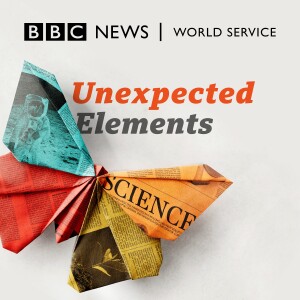
The effects of the Tonga eruption could be felt around the world, many heard the boom of a sonic shock, and tsunami waves travelled far and wide. Volcanologist Shane Cronin from the University of Auckland in New Zealand is one of only a handful of people to have landed on the tiny islands above the volcano where the eruption took place. Those islands have now sunk beneath the waves but Shane tells us what he found when he went there and how his findings could inform what happens next.
Stephan Grilli from the School of Ocean Engineering at the University of Rhode Island joins us from Toulon in France where he felt the effects of the shockwave and Tsunami. He says the force of the shockwave drove those waves worldwide.
The oceans have continued to warm, producing continuous record temperature rises for several years now. That’s the finding of Michael Mann of the University of Pennsylvania and author of The New Climate Wars. He says warming occurred last year despite the presence of global weather patterns which would usually have a cooling effect.
The long-term effects of covid-19 on health are a cause of growing concern even though in many places the virus itself now appears to be taking on a milder form. Yale University neuroscientist Serena Spudich is particularly concerned with covid’s impact on the brain. She says while the SARS- CoV-2 virus might not be found in brain cells themselves there are neurological impacts.
Scientists have been searching for dark matter for decades, and think there’s six times more of it in the universe than the stuff we can actually see, like stars and planets. But they still don’t know what it is. So how can we be sure dark matter really exists? And why does it matter, anyway?
Back in 2018, armed with a boiler suit, hard hat and ear defenders, Marnie Chesterton travelled over a kilometre underground into a hot and sweaty mine to see how scientists are valiantly trying to catch some elusive particles – in the hope of settling things once and for all.
Several years on we return to the problem, tackling a few more CrowdScience listeners’ questions about dark matter, and hearing whether we’re any closer to uncovering its mysteries. We’re joined in our quest by Dr Chanda Prescod-Weinstein, physicist and author of The Disordered Cosmos: A Journey into Dark Matter, Spacetime, and Dreams Deferred.
With Professor Malcolm Fairbairn, Dr Chanda Prescod-Weinstein, Dr Chamkaur Ghag and Professor Katherine Freese.
view more
More Episodes
Insects in incredible detail
 2021-07-04
2021-07-04
 2021-07-04
2021-07-04
Nyiragongo Eruption
 2021-05-29
2021-05-29
 2021-05-29
2021-05-29
Robot revolution
 2021-05-23
2021-05-23
 2021-05-23
2021-05-23
Covid and clean air
 2021-05-16
2021-05-16
 2021-05-16
2021-05-16
Africa’s oldest burial
 2021-05-09
2021-05-09
 2021-05-09
2021-05-09
Uncovering history with Little Foot's skull
 2021-03-07
2021-03-07
 2021-03-07
2021-03-07
Waste not, want not
 2021-02-28
2021-02-28
 2021-02-28
2021-02-28
Weird weather
 2021-02-21
2021-02-21
 2021-02-21
2021-02-21
Perseverance approaches Mars
 2021-02-14
2021-02-14
 2021-02-14
2021-02-14
Mixing Covid vaccines
 2021-02-07
2021-02-07
 2021-02-07
2021-02-07
Saving the Northern White Rhino
 2021-01-24
2021-01-24
 2021-01-24
2021-01-24
Gravitational waves and black holes
 2021-01-17
2021-01-17
 2021-01-17
2021-01-17
New variants of SARS-Cov2
 2021-01-10
2021-01-10
 2021-01-10
2021-01-10
Coping with Covid
 2021-01-03
2021-01-03
 2021-01-03
2021-01-03
2021 the year of variants
 2021-01-02
2021-01-02
 2021-01-02
2021-01-02
A year with Covid -19
 2020-12-27
2020-12-27
 2020-12-27
2020-12-27
Covid -19 – Mutations are normal
 2020-12-20
2020-12-20
 2020-12-20
2020-12-20
The unchecked spread of Covid-19 in Manaus
 2020-12-13
2020-12-13
 2020-12-13
2020-12-13
Freak weather getting even freakier
 2020-12-08
2020-12-08
 2020-12-08
2020-12-08
Vaccines – the Covid confusion
 2020-11-29
2020-11-29
 2020-11-29
2020-11-29
012345678910111213141516171819
Create your
podcast in
minutes
- Full-featured podcast site
- Unlimited storage and bandwidth
- Comprehensive podcast stats
- Distribute to Apple Podcasts, Spotify, and more
- Make money with your podcast
It is Free
- Privacy Policy
- Cookie Policy
- Terms of Use
- Consent Preferences
- Copyright © 2015-2024 Podbean.com



